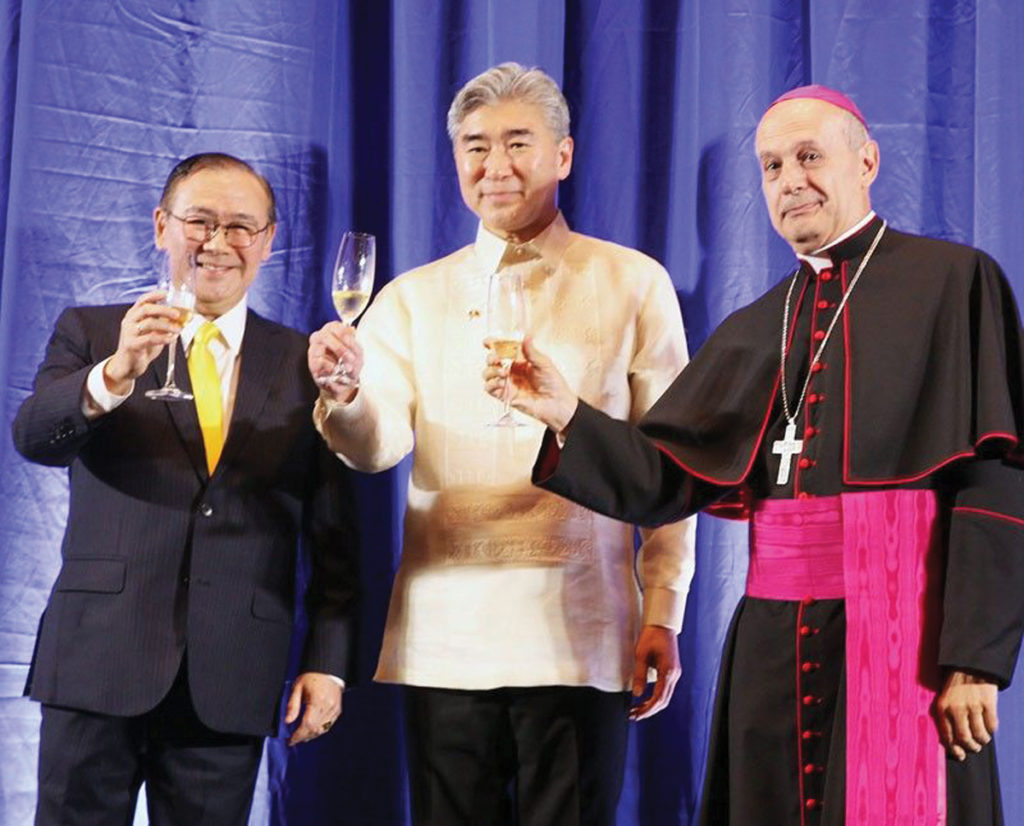
United States Ambassador to the Philippines Sung Kim on Wednesday, July 3 said the U.S. will “stand by” its obligations to the Philippines under the Mutual Defense Treaty (MDT) should an armed aggression against the latter country happen.
This response comes after Sen. Panfilo Lacson’s statement that the Philippine government should not wait for an attack in the West Philippine Sea before invoking the MDT.
“If there is an armed attack against Philippines’ forces, Philippines’ aircraft, Philippines’ public vessels, it will trigger our obligations under the Mutual Defense Treaty and we stand by that,” Kim said.
According to Article 4 of the MDT, each party “would act to meet the common dangers in accordance with its constitutional processes” in case an armed attack in the Pacific area happens.
The West Philippine Sea has been in the headlines recently after a Chinese vessel rammed a Filipino fishing boat near the Recto Bank and left its Filipino crew adrift in the open waters until a Vietnamese vessel came and rescued them.
“I think Secretary Pompeo was quite clear when he made that statement in the Philippines and, in fact, he conveyed that commitment directly to President [Rodrigo] Duterte in his meeting with the president,” Kim said, referring to Pompeo’s statement that the U.S. government remains “committed” to the MDT with the Philippines.
Protecting international rights
China’s activities and militarization in the contested South China Sea, while primarily for civilian purposes, have raised concerns on peace and stability in the area.
Kim, for his part, said the U.S. continues to conduct freedom of navigation operations in the contested waterway “to make clear to all countries, including the claimant countries, that we will do what is necessary to protect those international rights.”
“We’re not a claimant in the dispute and we have not tried to intervene on the resolution of the dispute. All we have said—and I think our position has been quite clear and consistent—is that we believe freedom of navigation, freedom of flight are important international rights that should be protected,” he said.
“And I should mention that those are rights not only beneficial to the United States but all of us benefit from protecting freedom of navigation,” Kim added.
The U.S. ambassador also said that “territorial dispute should be resolved in a manner that’s consistent with international laws,” when asked about Duterte’s previous challenge to the U.S. and several other countries to help Manila defend its interests in the South China Sea.
“Individuals countries should refrain from aggressive unilateral actions,” Kim added.





